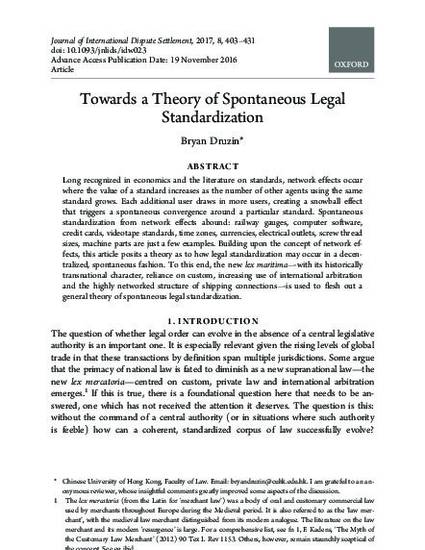
Article
Towards a Theory of Spontaneous Legal Standardization
Journal of International Dispute Settlement
(2016)
Abstract
Long recognized in economics and the literature on standards, network effects occur where the value of a standard increases as the number of other agents using the same standard grows. Each additional user draws in more users, creating a snowball effect that triggers a spontaneous convergence around a particular standard. Spontaneous standardization from network effects abound: railway gauges, computer software, credit cards, videotape standards, time zones, currencies, electrical outlets, screw thread sizes, machine parts are just a few examples. Building upon the concept of network effects, this article posits a theory as to how legal standardization may occur in a decentralized, spontaneous fashion. To this end, the new lex maritima—with its historically transnational character, reliance on custom, increasing use of international arbitration and the highly networked structure of shipping connections—is used to flesh out a general theory of spontaneous legal standardization.
Disciplines
Publication Date
2016
Citation Information
Bryan H. Druzin. "Towards a Theory of Spontaneous Legal Standardization" Journal of International Dispute Settlement (2016) Available at: http://works.bepress.com/bryan_druzin/25/
